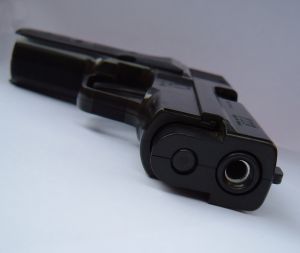
Although numerous pieces of legislation addressing gun control have been passed during Governor Chris Christie’s administration, a great deal of crime is still attributed to gun violence.
In 2008, the New Jersey Attorney General’s Office ordered all NJ police departments to forward gun tracing requests to the federal Bureau of Alcohol, Tobacco, Firearms and Explosives (ATF), as well as to the New Jersey State Police. This was part of an initiative known as NJ Trace, a program that allows these organizations to aggregate the data from the gun traces in efforts to locate routes for gun trafficking.
In 2012, the ATF published a report that released information pertaining to the geographical locations at which guns used in crimes were recovered. The report encompassed data aggregated from 3,595 guns and highlighted the “hot spots” as New Jersey cities.
The cities with the highest number of recovered guns include: Newark, Camden, Jersey City, Paterson, Trenton, Atlantic City, Elizabeth, Vineland, Irvington, and East Orange. According to the report, a total of 1,959 guns were recovered in these cities. The remaining 1,636 guns were scattered throughout 341 different localities, a breakdown of which was not provided in the bureau’s summary.
According to the report, the most common form of guns recovered were handguns, which constituted 2,903 of the total number of recovered guns.
The largest quantity of imported guns came from Pennsylvania and a collection of states along the “iron pipeline,” which includes North Carolina, Virginia, Georgia, South Carolina, and Florida. These states have less stringent gun purchasing requirements; as a result, they often act as sources of guns for New Jersey and New York. Experts have dubbed this well-established route through which guns travel the “I-95 corridor.”
Illegal handgun charges in New Jersey are governed under N.J.S.A. 2C:39-5(b). As set forth by this statute, illegal possession of a handgun is a very serious offense that can be classified as either a second degree felony or a third degree felony. Additionally, illegal handgun offenses are covered under the Graves Act, which requires a mandatory prison sentence as well as a period of parole ineligibility for those convicted.
Clearly, gun offenses have very serious consequences. Unfortunately, the penalties associated with these offenses have not successfully deterred individuals from using guns in crimes throughout New Jersey.
For more information pertaining to this topic, access the following article: MAP: Where do N.J. criminals get their guns? Mostly, not here.
To access the ATF report in its entirety, click the following link: New Jersey Firearms Trace Report



